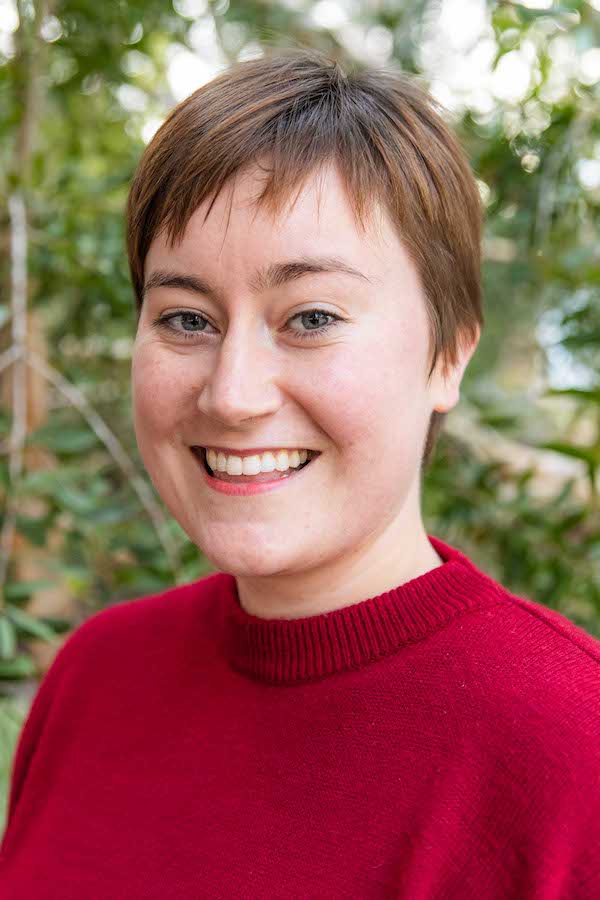How do we cope with the impending climate catastrophe? Do we need a new kind of emergency warning system… or Nigella Lawson? Local theatre maker Katie McAllister explores the answers in her new play Watch and Act.
What to SEE: Watch and Act
7 September 2021
- Reading time • 7 minutesTheatre
More like this
- Just what the doctor ordered
- Lifting the weight of the world
- Gentle touch guides lunar landing
Reading emergency fire warnings on the radio gave Katie McAllister some ideas about how we can cope with the uncertainty of climate change.
Those ideas have formed part of the inspiration for her debut work as a theatre writer. Her one-woman show Watch and Act, which began its life as part of her honours thesis in creative writing, reflects on the recent Black Summer and Wooroloo bushfires.
It’s a serious subject, but with references the 90s rom com Notting Hill and imaginary conversations with Julia Roberts, it’s infused with comedy too.
Ahead of the season, she told Nina Levy all about it.
Nina Levy: Katie, you grew up on Menang and Pibulmen Noongar Boodjar in Albany and Denmark. How has Watch and Act been shaped by your connection to those places?

Katie McAllister: The work is a desperate late-night message to every karri tree in Denmark to say, thank you, I love you, I’m sorry it took me so long to see you properly. I couldn’t see the trees for the forest of my own fear, I guess.
Moving away from Menang and Pibulmen Noongar Boodjar taught me that I feel most at home and most calm when I’m near the ocean or very tall karri trees. So I fan girl Greens Pool a lot in the show and the phenomenal, incomparable Clare Testoni has somehow absorbed my ramblings and produced a stunning set design that brings the karri trees of Denmark to the Blue Room.
Georgina Cramond has a beautiful skill for creating emotionally honest, vulnerable and brilliant music and has bloody gone and done it again with the tender, smart sound design. I cry listening to the immersive, ethereal soundscapes she’s created. I’ve gotta stop doing that because the show is largely a comedy.
NL: In addition to being an educator, producer and (self-described) accidental theatre maker, you’ve worked as a radio presenter and for a couple of summers you were an emergency broadcaster. How does that experience feed into Watch and Act?
KM: When I’d read fire warnings, no matter how dire the situation, there were always choices you could make to mitigate harm. The warnings exist during an immediate, physical crisis but I think the idea of having clearly defined choices and a clear language to manage any crisis is very helpful. Watch and Act recognises that managing anxiety and climate grief means dealing with a lot of unknowns, so a clear warning system and precise language to do that would be dreamy.
NL: Watch and Act is also about learning to cope with the uncertainty of Obsessive Compulsive Disorder (OCD). How does that connect with the challenges of coping with climate change?
KM: That’s what I’m trying to work out in the show! My experience with managing OCD symptoms has changed since I was a little kid growing up in Denmark, but from then until now it’s always been about finding a healthier way to sit with uncertainty and respond to fear.
Reading the IPCC’s report is terrifying; we are facing a future where there will be more and longer fire seasons, rising sea levels and drought. Intrusive, terrifying thoughts can be part of OCD and at this point getting breaking news alerts and imagining the next fifty years in this country can feel painfully similar and scary. In both instances it’s about managing an unproductive response to a real or perceived threat. It’s hard to work out what’s actually a real problem compared to the one I’ve invented. It’s hard to work out what’s helpful compared to what’s familiar. And a familiar story about climate change is that it is happening separate to us, or somewhere else that isn’t Boorloo, somewhere in the future, not right now.
But it’s here and we all need the mental health plans to survive it.
NL: I hear that Georgina Cramond’s soundscape for the show references interviews with Nigella Lawson… why Nigella?
KM: I feel like I keep hearing we need our best minds to stop climate change. Get Nigella on it.
Seriously. She’ll make us feel our feelings. That woman is a genius. I’m constantly inspired by the way she prioritises and protects her pleasure.
And I think there’s a lesson in that; if you get pleasure from going to the beach, from walking through the bush, from eating fresh fruit in summer – protect those sacred things. My dream is to eat peaches from Nicklup Orchard at Boiler Bay with Nigella. It’d be so hot. I can’t do that if the whole world burns down.
NL: What do you hope audiences will take away from this work?
KM: Connection, comic relief and a reading list.
We know we need to be talking about climate change all the time, but that can feel lonely and overwhelming. So I’m hoping to offer a weirdly different sort of language around climate grief.
This is a work that is trying to care about place – something that Noongar people have done for tens of thousands of years and Tim Winton has done for a bit. I hope audiences get paying attention to place and that grieving the end of it isn’t a new concept – this is my bizarre way of starting to do that, that can never possibly live up to the genius and custodianship of country that First Nations people have been doing forever.
Watch and Act plays The Blue Room Theatre 28 September – 16 October 2021.
Pictured top is Katie McAllister. Photo: Marnie Richardson
Like what you're reading? Support Seesaw.






